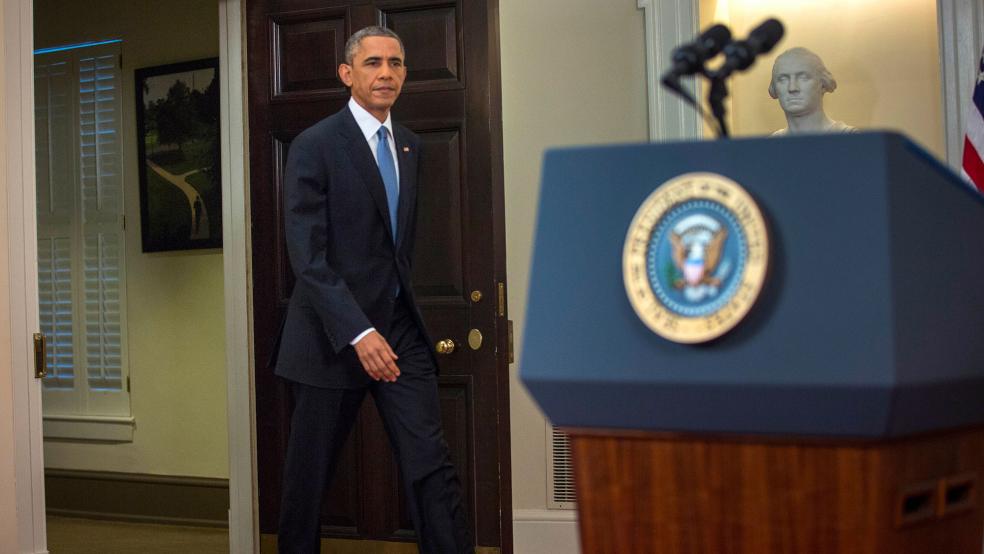The war against ISIS hasn’t been going well for President Obama, and his immigration reform policies are stalled in the courts. But he scored two major victories this week on the environmental front that enhanced his efforts to combat global warming.
First he departed the Group of Seven meeting on Monday with important commitments from Germany and other major industrialized countries on reducing greenhouse gas emissions in advance of an international summit in Paris later this year to address climate change. Obama and German Chancellor Angela Merkel conspired to make the G-7 gathering an important prelude to the Paris meeting, where world environmental leaders are expected to try once again to craft a global warming treaty with some bite to it.
Related: Obama’s Budget Boosts EPA to Fight Climate Change
The elite group of leaders pledged to phase out fossil fuels – the main culprit contributing to climate change—by the end of the century and to demand binding global emissions limits to make certain that world temperatures do not rise more than 3.6 degrees Fahrenheit over pre-industrial levels, The Washington Post reported. Reaching that accord wasn’t easy, and required Obama and Merkel to use their powers of persuasion with leaders of Japan and Canada, who resisted the proposal out of concern about its potential adverse economic impact.
The leaders embraced an objective that a United Nations climate change panel says is essential to avert damaging and dangerous increases in the world’s temperature. If the goal were achieved, it would reduce carbon emissions 40 percent to 50 percent by 2050.
A federal appeals court provided Obama with a second piece of good environmental news on Tuesday, when it dismissed two potentially devastating lawsuits challenging the administration’s sweeping proposal to address climate change through strict limitation on emissions by coal-fired power plants.
Related: Obama Warns of Costly Public Health Crisis Spurred by Climate
The rule unveiled last year by the Environmental Protection Agency would require states to cut carbon emissions by 30 percent by 2030, with the states obliged to come up with their own plans for meeting the target. The proposed rule is the centerpiece of the president’s efforts to slash pollution linked to climate change.
One lawsuit was filed by a coalition of 15 coal-reliant states. The second was from Ohio-based Murray Energy Corp., the nation’s largest privately held coal mining company. Opponents say the plan would force coal companies to shut down plants, eliminate thousands of jobs and drive up electricity prices.
They argue that the plan is illegal because the EPA already regulates other power plant pollutants under a different section of the Clean Air Act. They say the law prohibits “double regulation.” The EPA, however, maintains that it has authority for the plan under the Clean Air Act.
The U.S. Court of Appeals for the District of Columbia Circuit tossed the suits out today, primarily on the grounds that the regulation hasn’t been finalized yet and that the court could not issue a ruling on a proposed regulation that could still be changed, according to the Associated Press
Related: Despite Reams of Evidence, Global Warming Ranks Low on Americans’ Worry List
“They want us to do something that they candidly acknowledge we have never done before,” wrote Judge Brett Kavanaugh. “We do not have authority to review proposed agency rules.”
While the ruling was a major setback for opponents of emission limits, but it may be only temporary. West Virginia Attorney General Patrick Morrisey said he was disappointed but added, “We still think we have a compelling case that the rule is unlawful.” He said the state would continue with litigation to stop “this unlawful power grab by Washington bureaucrats.”
Top Reads from The Fiscal Times




